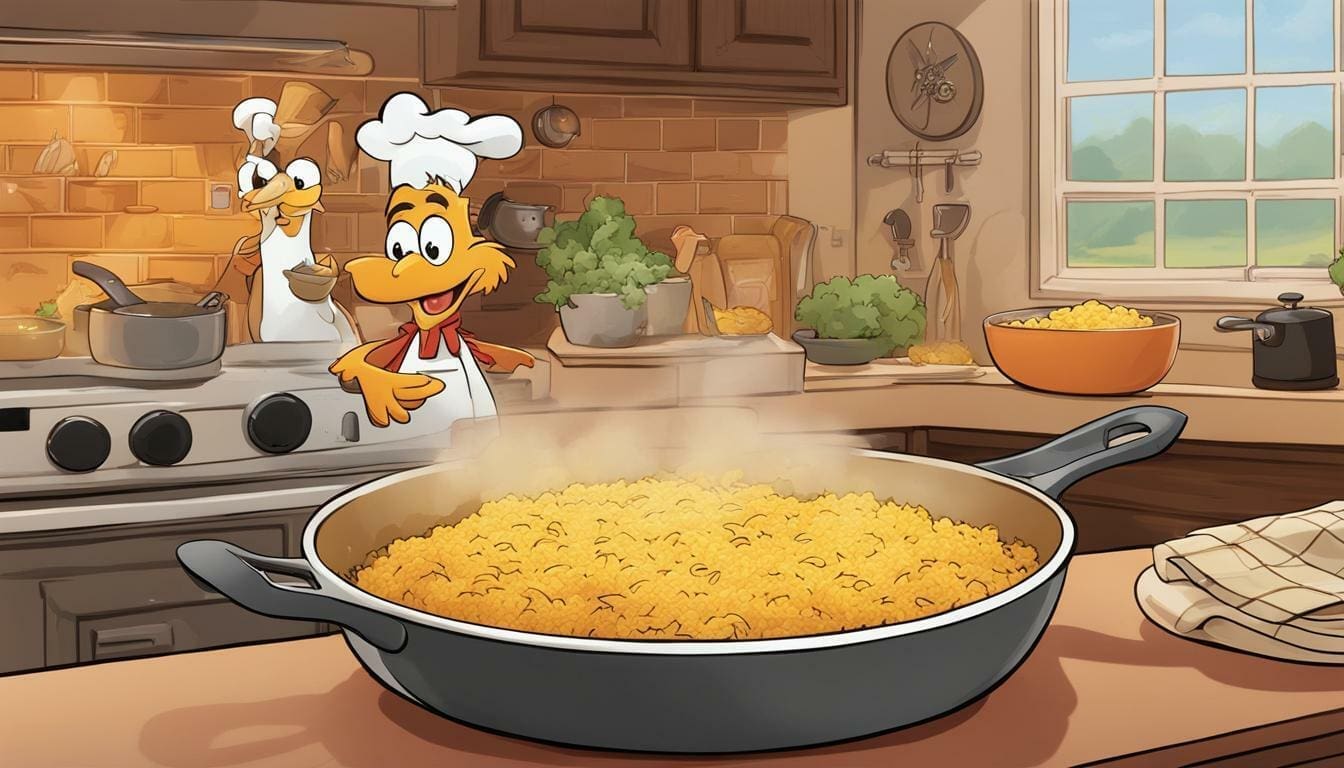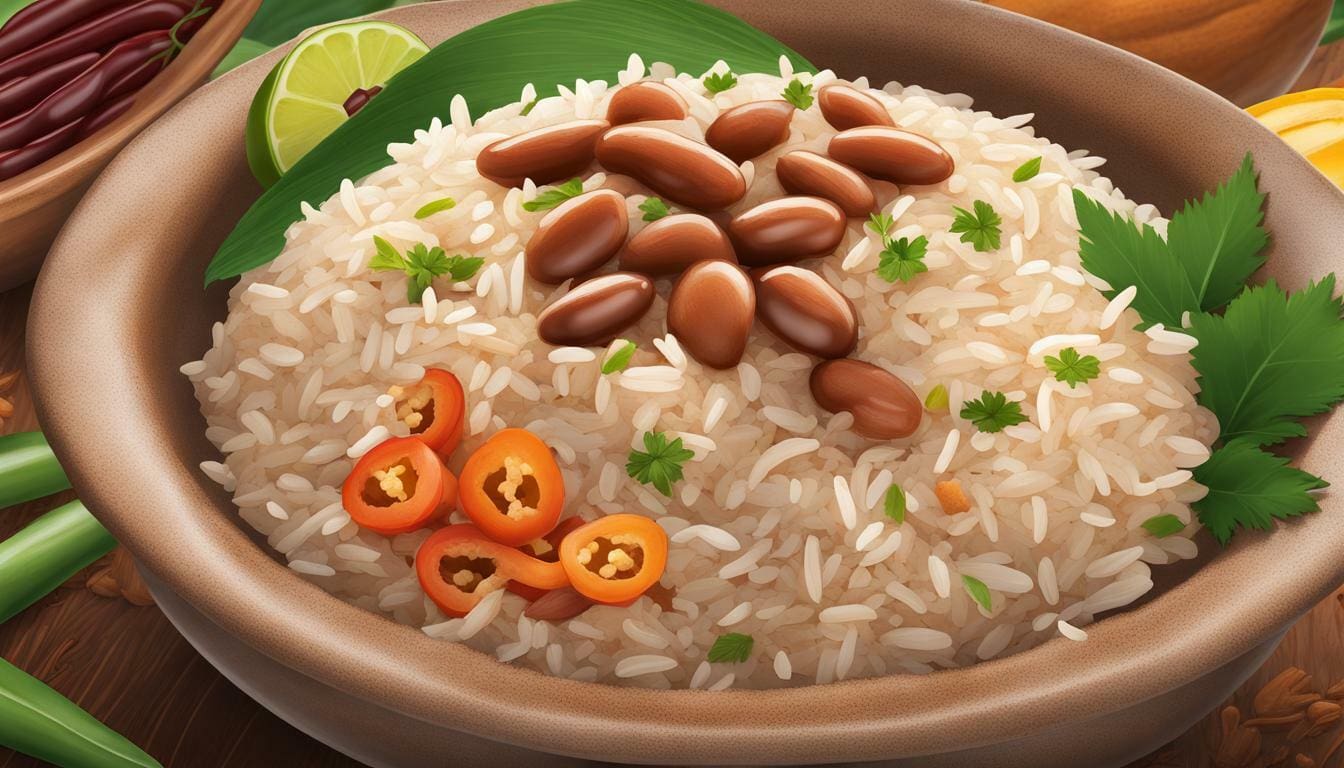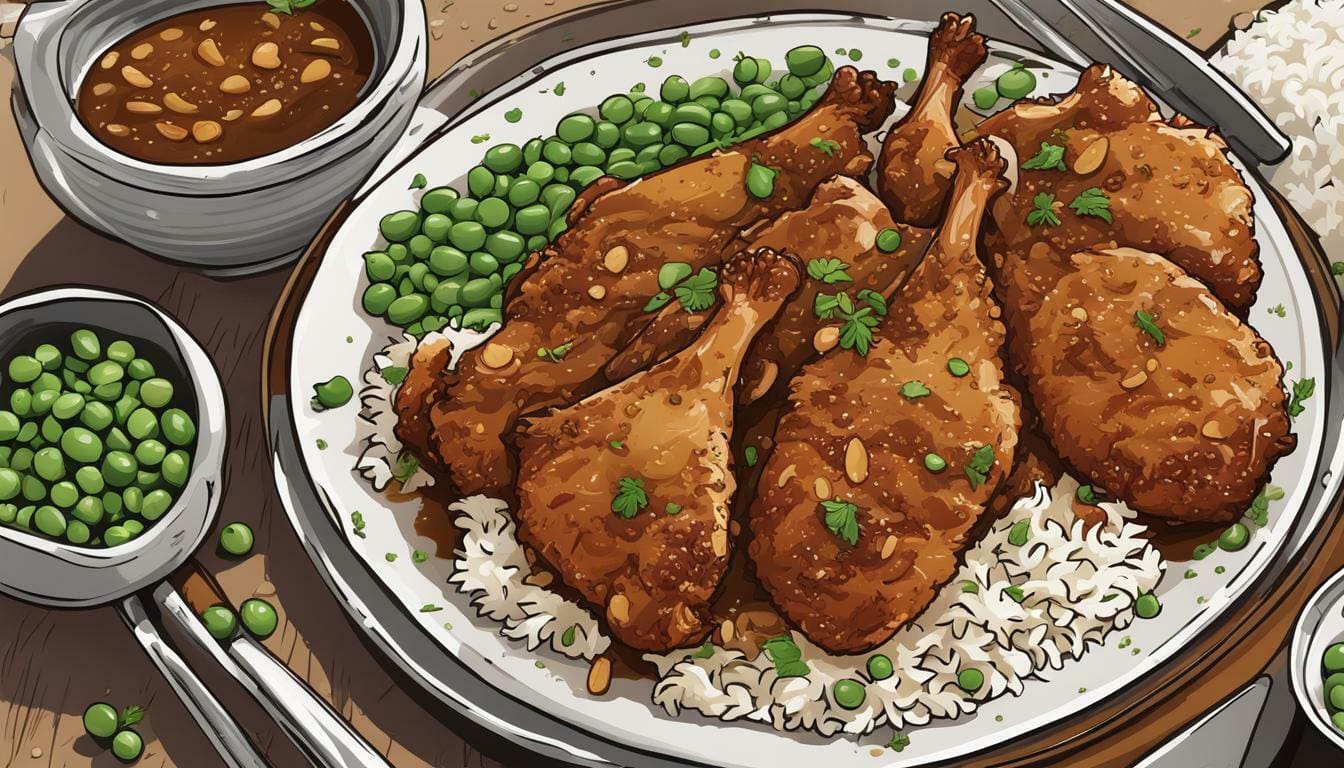Introduction
A perfect rice dish is easy to prepare with a few ingredients and minimal effort However how do you know what seasoning or sauces to use? You might ask yourself that question as you scan your spice rack with no luck You could resort to a stovetop rice dish and hope for the best but that’s not ideal either at least not when so many recipes for jollof rice are out on the internet! Fortunately for you we’ve compiled an extensive list of all the different ways to make burnt rice dishes There are many different methods but some variations include grilled chicken pork chops and steak pieces whereas others include: bacon bits and sautéed mushrooms nori seaweed and zucchini japchae noodles and bulgogi Burnt rice may seem like an accident but there is a science to making it the perfect texture In this blog post we will walk you through the cooking process to make nurungji that is crispy on the outside and fluffy on the inside Follow our tips and you’ll be able to make restaurant quality nurungji using a rice cooker at home!
Choose The Correct Type Of Rice
The type of rice you use will make or break your dish Glutinous rice for example is suited to different dishes because it comes with varying textures.
There are two main types of rice: white and brown Both work great for burning rice but white rice is best if you want a softer texture and taste Brown rice is the way to go if you’re looking for a chewier texture and an earthier flavor Nurungji kernels either variety works well!
The second thing to consider is the grain size of the rice itself The larger the grain size the thicker and chewier the texture Some rice types are also known for their texture specifically polished rice These types of rice are usually smaller than other varieties but can still make good nurungji with a few modifications such as adding japchae noodles or kimchi.
The next thing to consider is where you cook your white rice Once you’ve decided on the type of rice and the grain size you prefer you may have to consider if you want to cook it in a rice cooker or a pressure cooker The choice is yours! If you’re using a regular pot for cooking your glutinous rice be sure that there’s plenty of water in there so it can fully absorb into each grain japchae noodles.
Rinse The Rice Thoroughly
A dish made with less than perfect white rice may not be appealing to everyone If you want to make burnt rice (nurungji) that doesn’t taste gritty you can do a few things before cooking your rice First rinse the kernels thoroughly with cold water This will help remove the excess starch and lessen the sticking properties of the rice grains The rinsing process should take two to three minutes which is all you’ll need! Adding some green onions or beansprouts can also help enhance the flavor of your rice dish.
Let Your Grains Soak Up Some Water
When you place your glutinous rice in the pot add enough water so it’s submerged by about an inch or two Next bring the water to a boil so it boils as fast as possible The boiling water will push the grains down into the pot which helps prevent them from sticking to each other and forming clumps.
If you’re using a rice cooker follow the instructions given by the manufacturer Once you get a boil let it simmer for about 10 minutes If you’re not using a pressure cooker and are cooking your white rice in a stovetoplet it simmer for about 40 minutes.
Add The Right Amount Of Water
Once the water has boiled and the stovetop white rice is nearly cooked you can add the right amount of water Use a ladle to scoop out most of the water from your pot while leaving half an inch at the bottom as a cavity for your grains You can also use a tiny strainer but be sure not to get rid of too much water or your dish will be too dry Nurungji is created during the cooking process if you keep the rice in the pot afterwards and let it sit for a whileTo add some extra flavor to your dish you can also try adding some kimchi or bulgogi.
Cook Over Low Heat
Once you’ve added the water turn down the heat to low The low heat will allow the stovetop white rice to cook more evenly You should avoid stirring at this point because it can cause your rice to clump together and stick resulting in the creation of nurungji.
If you’re using a pressure cooker, close it while leaving a crack and let it simmer for 30 minutes with no pressure. Simmer it without pressure for about 15 minutes if you use a regular pot.
Stir Occasionally
Now that your white rice is in perfect texture you have a few options If you’re using a rice cooker let the kernels simmer under low pressure for another 30 minutes If you use a pot on low heat let it simmer for 10 minutes until your glutinous rice is cooked through and fluffy.
Then all that’s left is to stir in whatever additional ingredients you’d like to season your dish with! Japchae noodles make an excellent addition because they add a unique texture that compliments most sauces and spices Just add some before adding them to your nasi dish.
Let It Sit For A Few Minutes After Cooking
Sitting on your dish for a few minutes is perfect for serving your family and friends stovetop white rice with nurungji kernels You can serve it in separate bowls or as a salad but you don’t want to rush things or risk burning the rice!
Stir it every so often but be careful not to burn it! Once there are just two or three minutes left on the timer stir it gently to distribute kernels throughout the dish Make sure your burning rice is extra fluffy if you want the best texture with baking soda beverage.
Finally, place your dish on paper plates and put some napkins on each plate! Serve dinner with a smile! Burnt rice comes out perfectly whenever done right.
Conclusion
To sum this all up we’ll repeat it one more time Burning rice or Nurungji is a traditional stovetop rice dish that many people were raised on It is popular in many countries and is an everyday staple If you’re looking for an inexpensive meal or want to make your kids feel like they are having something special (or even if you just want to treat yourself) this dish with zucchini and beansprouts is one of the best! You don’t need expensive ingredients or fancy tools like a rice cooker or wok to cook burning rice all that’s required is your stove pot and some water!
If you follow these directions and use the proper tools, you’ll have plenty of great burnt rice to serve your family!


